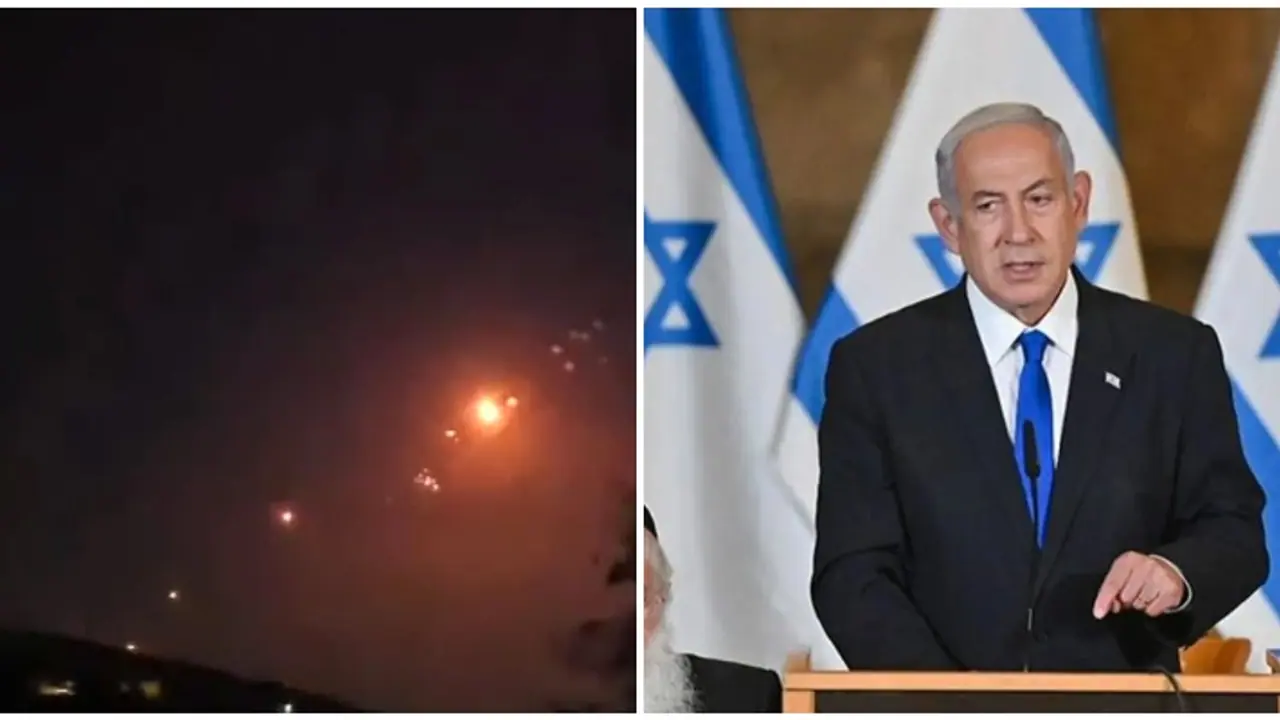The ceasefire between Israel and Hezbollah, based in Lebanon, came into effect on Wednesday after both warring factions agreed to the terms of the ceasefire brokered by the United States.
The recently brokered ceasefire between Israel and Hezbollah, which ended a grueling 13-month conflict, has drawn attention to the challenges of maintaining peace in a region fraught with deep-seated tensions. Former Israeli intelligence official and regional analyst Avi Melamed has expressed cautious optimism about the deal while underscoring its precarious nature and the broader implications for Lebanon's sovereignty.

The agreement, facilitated by the United States and supported by France, calls for a 60-day cessation of hostilities. Key provisions include Hezbollah retreating 40 kilometers from the Israel-Lebanon border and the deployment of 5,000 Lebanese troops, backed by United Nations peacekeepers, to secure the region. The deal seeks to uphold UN Security Council Resolution 1701, which mandates that the area south of the Litani River remain free of armed fighters other than the Lebanese Army.
Also read: Israel-Hezbollah ceasefire deal: Key terms of the agreement brokered by US explained
Former Israeli intelligence official's view on Israel-Hezbollah ceasefire deal
Former Israeli intelligence official and regional analyst Avi Melamed believes that while Hezbollah has been weakened, it remains a significant force in the region.
"As hopes rise for a continued Israel-Hezbollah ceasefire agreement, it is important to note several key considerations. First, the situation remains highly fragile, with any ceasefire being vulnerable to violations and other setbacks. Another critical point is the large number of displaced people in both Israel and Lebanon. Around 60,000 to 70,000 Israelis from the northern communities and approximately 120,000 southern Lebanese remain unable to return to their homes due to the destruction caused by the ongoing conflict. The need for extensive reconstruction in both areas remains urgent," Melamed said.
The analyst highlighted the broader stakes for Lebanon’s sovereignty. "Looking ahead, the challenge of restoring Lebanese sovereignty is the most key of issues, especially in light of Hezbollah's dominance in the country. For Lebanon to regain control over its territory and prevent Hezbollah from continuing to dictate its agenda, the political situation within Lebanon must stabilize. Given the profound crisis the country has been facing for years, it seems unlikely that Lebanon’s political system can effectively address this challenge. Meanwhile, Iran and Hezbollah are expected to make efforts to reassert their control over Lebanon as soon as possible," Melamed said.
He also also emphasized the importance of curbing arms shipments from Iran to Hezbollah, with reports suggesting that Israel, in coordination with the US, plans to intercept these supplies before they reach Lebanon. "A significant concern is the continued shipment of arms from Iran to Hezbollah in Lebanon. Reports suggest that under an understanding between Israel and the United States, Israel will work to intercept these shipments, particularly those crossing from Syria into Lebanon before they reach Syria," he noted.
"Overall, the situation remains highly precarious. Hezbollah, while weakened, still plays a significant role, and the question remains whether it will rebuild its strength, setting the stage for a more intense future conflict. If Hezbollah will be able to rebuild its military infrastructure in South Lebanon, it could lead to another round of violence. However, if its power is effectively restrained, particularly by Western intervention, including a robust response from the U.S. under the new administration, Lebanon might be able to regain more control over its sovereignty. The next steps will be crucial in determining whether Hezbollah can continue to impose its will on Lebanon or if a shift in the balance of power will occur," Melamed further stated.
How Israel, Lebanon and Hezbollah reacted to US-brokered ceasefire deal
The agreement has received mixed reactions. Israeli Prime Minister Benjamin Netanyahu acknowledged the ceasefire but vowed to act against any perceived threats, stating, “If Hezbollah violates the agreement and tries to arm itself, we will attack.”
Lebanon’s caretaker Prime Minister Najib Mikati welcomed the deal as a step toward regional stability, while Hezbollah expressed conditional approval, emphasizing the importance of preserving Lebanon’s sovereignty.
Hezbollah said it also accepts the proposal and its deputy chair of political council, Mahmoud Qamati, told Al Jazeera that “We want an end to the aggression, of course, but not at the expense of the sovereignty of the state. Any violation of sovereignty is refused.”
US President Joe Biden praised the decision by Lebanon and Israel's leaders to end the violence, stating, "It reminds us that peace is possible."
“Over the next 60 days, Israel will gradually withdraw its remaining forces and civilians on both sides will soon be able to safely return to their communities and begin to rebuild their homes,” the outgoing US president added.
French President Emmanuel Macron, in a joint statement with President Biden said “The announcement today will cease the fighting in Lebanon, and secure Israel from the threat of Hezbollah and other terrorist organizations operating from Lebanon.”
(Avi Melamed is a former Israeli intelligence official who went on to serve as deputy and then as senior Arab affairs adviser to Jerusalem Mayors Teddy Kollek and Ehud Olmert, operating as a negotiator during the first and second intifadas. He is the author of “Inside The Middle East | Entering A New Era,” and his latest docuseries, “The Seam Line,” focuses on Jerusalem’s flashpoints and his work during the intifadas.)
